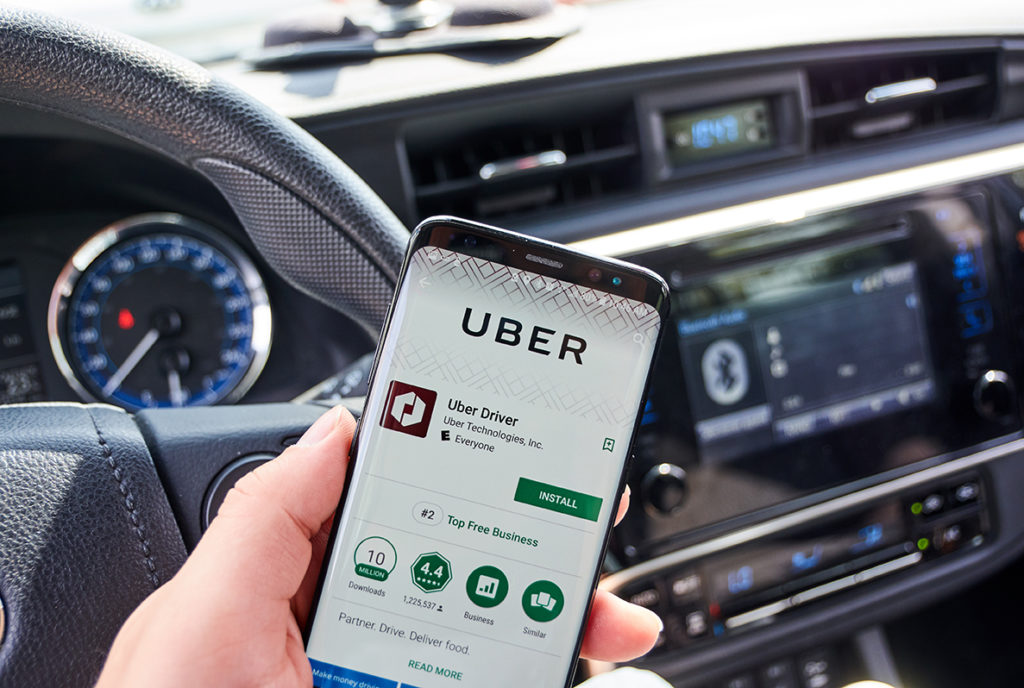Uber’s loss at The Supreme Court was a drastic blow to their working model. Or was it? Though not dishing out a penalty per se, The Supreme Court Ruling stopped Uber from evading certain responsibilities and sent a message to them and companies that operate similarly.
Uber Is Warning That Giving Drivers Minimum Wage Means Less Shifts and Less Drivers
As a response, Uber executives gave a seemingly dismissive statement that downplayed the considerable significance of the judgement on their working practices. This was soon followed by a press release, admitting their ‘willingness to change’ and drivers holiday pay, pension contributions and a guarantee of the National Living Wage. It was a big step but appeared to ignore major parts of The Supreme Court decision.
One such judgment was that Uber drivers are ‘working’, and therefore entitled to minimum wage from the moment they turn on the app to accept jobs.
Uber Say That Drivers Are Worried About A Lack Of Flexibility
In a recent interview, Uber’s regional manager, Jamie Heywood, has said that Uber drivers are worried about a lack of flexibility in their working life. James Farrar and Yaseen Aslam, central to the employment tribunal case that eventually made its way to The Supreme Court, made a clear point about the outcome of the decision. The two former Uber drivers reiterated that working time was from ‘log on to log off’.
Even in Uber’s second statement, where they admitted a willingness to change and offered a host of benefits, this ‘working time’ issue was not addressed.
In essence, this is the heart of the issue with companies that operate in the gig economy. Workers are only paid for the job (or gig) that they do, but their availability to take a job contributes to the overall success of the platform/app itself. As mentioned in previous articles, The Uber app is attractive to customers because there are thousands of drivers waiting for a job, and so with the click of a button someone is available.
The Problem Of Waiting Time – Are Uber Drivers Working From When They Turn On The App?
Uber benefits from the drivers waiting time and the job the driver carries out. The driver only benefits from the job. The driver, however, is still ‘at work’ for as long as he is signed in as available on the Uber app. This scenario could be compared to a chef that is only paid when a diner orders food, but must stay in the kitchen in order to get work.
Jamie Heywood responded to this issue by saying “If drivers were entitled to the minimum wage for all the time they simply had the app open, this would mean set shifts and a drastic cut to the number of drivers who can earn with Uber at a time when the UK needs more earnings opportunities not less”. It could be argued that Jamie is confusing what is good for Uber and what is good for Uber’s drivers.
And what of the driver that works for multiple app firms? If they are logged in waiting for jobs from more than one provider they could be earning from each one whilst only be able to service a single request when it comes in. The issue is not easy to resolve without restricting drivers’ existing freedoms.
Is It Even Possible For Uber To Pay Drivers Full Minimum Wage?
Essentially, within their current gig economy model, a national minimum wage for all the time that their driver is ‘at work’ seems financially untenable. Heywood presents two possible choices. Uber can pay what it currently does per job, and drivers can earn a lot during a busy period but drastically less during a slow period, or it can pay all drivers minimum wage. Presumably, the minimum wage would mean slightly more during times with no jobs and a lot less than if drivers were constantly taking passengers.
For drivers prepared to work the peak (probably more unsociable hours) in busy areas with lots of work, better earning opportunities can exist. For drivers in times like the pandemic, a lack of minimum wage could put them in serious financial trouble, especially if further Government support schemes are not forthcoming. The pandemic presents a problem for gig workers like we’ve never seen before. Some are driving around London for hours with no jobs, wasting time and earning nothing. It is certainly not a question of lazy drivers getting nothing and hard-working drivers having the world at their feet. The reality is less simplistic than that.
Heywood insists that drivers want flexibility overall, and this may be true for some drivers at some points. However, it is hard to see why drivers who have been unable to work for months during the past year would say no to having their bills paid in a period where passengers are sparse.
Plan Insurance can provide bespoke private hire insurance quotes for all UK drivers. Just fill in our short online questionnaire, and our professional brokers will be in contact to arrange your insurance.


